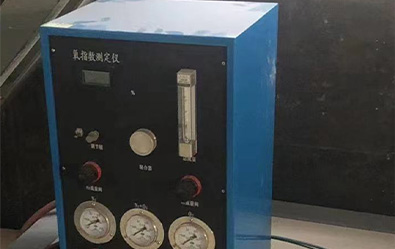loading...
- No. 9, Xingyuan South Street, Dongwaihuan Road, Zaoqiang County, Hengshui, Hebei, China
- admin@zjcomposites.com
- +86 15097380338
- Welcome to visit our website!
Effective Solutions for Purifying Well Water for Safe Drinking and Household Use
Well Water Purification Systems Ensuring Safe Drinking Water
Access to clean drinking water is a fundamental human need, yet millions of people rely on private wells for their water supply, often without a thorough understanding of the potential contaminants. Well water is susceptible to various pollutants, including bacteria, nitrates, heavy metals, and chemicals, depending on geographical factors and land use. As such, investing in a well water purification system is essential for ensuring that this vital resource is safe for consumption.
Understanding Well Water Contaminants
Well water can be contaminated by natural sources and anthropogenic activities. Naturally occurring contaminants include minerals such as iron, manganese, and arsenic, which can leach into groundwater from surrounding rocks and soil. Additionally, agricultural practices can introduce nitrates and pesticides into the water supply, while septic systems can contribute harmful bacteria and viruses when not properly maintained.
The impact of these contaminants can be serious. For instance, high levels of nitrates in drinking water can cause methemoglobinemia, or blue baby syndrome, in infants, hindering their ability to transport oxygen. Similarly, the presence of coliform bacteria indicates fecal contamination, posing severe health risks, including gastrointestinal illnesses.
The Importance of Testing
Before selecting a purification system, it is imperative to conduct water testing. Homeowners should regularly test their well water for a variety of contaminants to identify specific problems. This process often involves sending samples to certified labs, which can analyze the water for pathogens, chemical pollutants, and physical characteristics such as pH and turbidity. Understanding the water's makeup allows homeowners to select the most effective purification method tailored to their needs.
Types of Well Water Purification Systems
Various purification systems are available, each designed to combat specific contaminants. Here are some of the most common types
well water purification system

1. Reverse Osmosis (RO) Systems Ideal for removing a broad spectrum of contaminants, RO systems use a semi-permeable membrane to filter out bacteria, viruses, heavy metals, nitrates, and even some chemicals. This system is particularly beneficial for households needing high-quality drinking and cooking water.
2. Ultraviolet (UV) Light Purifiers UV light treatment systems are effective at killing bacteria, viruses, and other microorganisms without the use of chemicals. These systems work by exposing water to UV light, which disrupts the DNA of harmful pathogens, rendering them harmless.
3. Activated Carbon Filters These filters utilize activated carbon to absorb contaminants, including chlorine, volatile organic compounds (VOCs), and unpleasant tastes or odors. While effective for certain chemicals, they do not remove all pathogens, making them best used in conjunction with other systems.
4. Water Softeners Hard water, which contains high levels of calcium and magnesium, can lead to scale buildup in pipes and appliances. Water softeners exchange calcium and magnesium ions with sodium or potassium ions, making the water softer and more manageable for household use.
5. Sediment Filters These filters are crucial for removing larger particles like sand, silt, and clay from the water. Sediment filters protect other systems, such as RO and UV systems, by preventing damage and maintaining efficiency.
Maintenance and Regular Upkeep
Selecting a purification system is only the first step; regular maintenance is essential for ensuring its effectiveness. Homeowners should follow the manufacturer's guidelines for filter replacements and system cleaning. Additionally, periodic water testing should be performed even after installation to confirm that the system is functioning properly and to adapt to any new contaminants that may emerge.
Conclusion
Investing in a well water purification system is a proactive approach to safeguarding one of life’s most essential resources. By understanding potential contaminants, testing water regularly, and choosing the appropriate purification method, homeowners can ensure that their well water is not only safe but also healthy for their families. Clean drinking water is not just a privilege but a necessity, and with the right systems in place, well water can meet that essential need reliably and sustainably.
-
The Rise of FRP Profiles: Strong, Lightweight, and Built to LastNewsJul.14,2025
-
SMC Panel Tanks: A Modern Water Storage Solution for All EnvironmentsNewsJul.14,2025
-
GRP Grating: A Modern Solution for Safe and Durable Access SystemsNewsJul.14,2025
-
Galvanized Steel Water Tanks: Durable, Reliable, and Ready for UseNewsJul.14,2025
-
FRP Mini Mesh Grating: The Safer, Smarter Flooring SolutionNewsJul.14,2025
-
Exploring FRP Vessels: Durable Solutions for Modern Fluid HandlingNewsJul.14,2025
-
GRP Structures: The Future of Lightweight, High-Performance EngineeringNewsJun.20,2025
